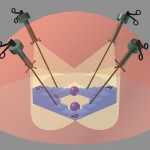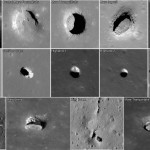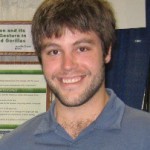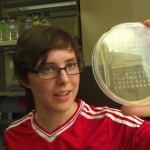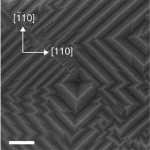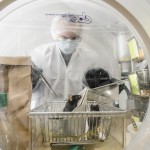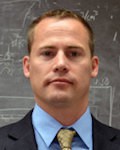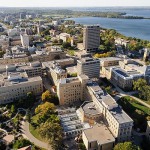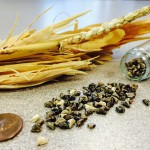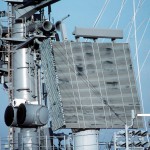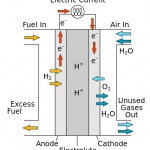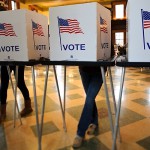Tag Research
Wireless microcamera clusters broaden laparoscopic imaging
A revolutionary integrated imaging system under development at the University of Wisconsin–Madison could significantly advance laparoscopy, a minimally invasive surgical procedure that, over the last half century, has seen only incremental improvements in imaging.
New data from Antarctic detector firms up cosmic neutrino sighting
Researchers using the IceCube Neutrino Observatory have sorted through the billions of subatomic particles that zip through its frozen cubic-kilometer-sized detector each year to gather powerful new evidence in support of 2013 observations confirming the existence of cosmic neutrinos.
Fall Competition aims to set standard for research excellence
In addition to the recently announced UW2020 research funding initiative, the Office of the Vice Chancellor for Research and Graduate Education is continuing its longstanding Fall Competition for research funding.
Novel Morgridge technology may illuminate mystery moon caves
It's widely believed that the moon features networks of caves created when violent lava flows tore under the surface from ancient volcanoes. Some craters may actually be "skylights" where cave ceilings have crumbled.
More details on origin of world’s favorite beer-making microbe
The crucial genetic mashup that spawned the yeast that brews the vast majority of beer occurred at least twice - and both times without human help - according to a University of Wisconsin–Madison study published Aug. 11 in the journal Molecular Biology and Evolution.
Discovery in growing graphene nanoribbons could enable faster, more efficient electronics
Graphene, an atom-thick material with extraordinary properties, is a promising candidate for the next generation of dramatically faster, more energy-efficient electronics. However, scientists have struggled to fabricate the material into ultra-narrow strips, called nanoribbons, that could enable the use of graphene in high-performance semiconductor electronics.
“Happy Days Study” meets the microbiome
For almost 60 years, the Wisconsin Longitudinal Study (WLS) has closely followed the life course of roughly a third of Wisconsin high school graduates from the class of 1957.
UW leading $2.6 million effort to improve solar power plants
The U.S. Department of Energy has awarded $2.6 million to a research collaboration led by University of Wisconsin–Madison engineering physics research Professor Mark Anderson that aims to advance the technology of utility-scale concentrating solar power (CSP) plants.
UW engineers use ‘CRISPR’ technology to locate crucial protein in stem cell survival
In a multidisciplinary effort, a team of University of Wisconsin–Madison engineers has identified a protein that is integral to the survival and self-renewal processes of human pluripotent stem cells (hPSC).
UW study shows how a kernel got naked and corn became king
Ten thousand years ago, a golden grain got naked, brought people together and grew to become one of the top agricultural commodities on the planet.
Researchers pinpoint where the brain unites our eyes’ double vision
If you have two working eyes, you are live streaming two images of the world into your brain. Your brain combines the two to produce a view of the world that appears as though you had a single eye - like the Cyclops from Greek mythology.
Keeping up that positive feeling: the science of savoring emotions
Savoring a beautiful sunset and the positive emotions associated with it can contribute to improved well-being, according to research. But why and how are some people better than others in keeping the feeling alive?
Words jump-start vision, psychologist’s study shows
Cognitive scientists have come to view the brain as a prediction machine, constantly comparing what is happening around us to expectations based on experience - and considering what should happen next.
Molecular fuel cell catalysts hold promise for efficient energy storage
In the quest for better, less expensive ways to store and use energy, platinum and other precious metals play an important role. They serve as catalysts to propel the most efficient fuel cells, but they are costly and rare.
Dietary intervention primes triple-negative breast cancer for targeted therapy
A diet that starves triple-negative breast cancer cells of an essential nutrient primes the cancer cells to be more easily killed by a targeted antibody treatment, UW Carbone Cancer Center scientists report in a recent publication.
Election turnout research wins national award
An article by four University of Wisconsin–Madison professors on the effects of election laws to make voting more convenient and increase turnout has received a national award.

